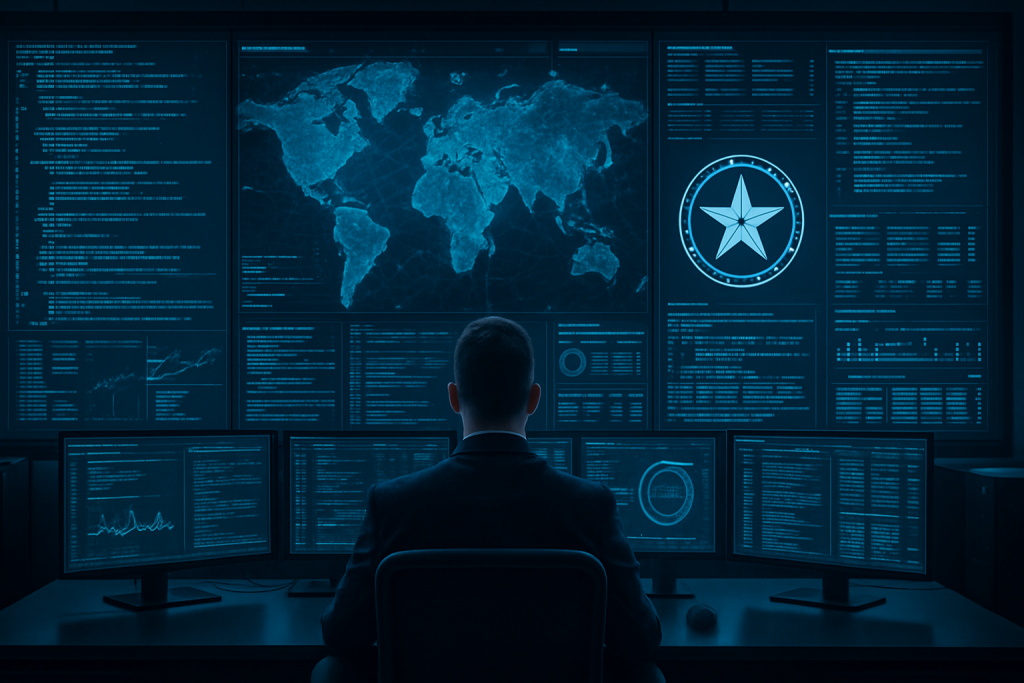The year is 2025. Flying cars? Not quite. But the AI revolution? Oh, it’s here, baby. And it just got a whole lot more… well, let’s just say “interesting.” OpenAI, the folks who brought us the GPT series and basically redefined what’s possible with natural language processing, just landed a cool $200 million deal with the U.S. Department of Defense. Cue the dramatic music.
Before you start picturing sentient robots declaring war on humanity (thanks, Skynet), let’s break this down. This isn’t your grandpa’s defense contract. We’re talking about frontier AI capabilities, designed to tackle critical national security challenges. Think smarter cybersecurity, faster threat analysis, and maybe even AI-powered logistics that make Amazon Prime look like snail mail. The goal? To give the U.S. a strategic edge in both warfighting and the enterprise domains. The work is slated to wrap up by July 2026, with the majority of the development happening in and around the bustling tech hub of Washington, D.C.
Now, you might be thinking, “OpenAI? Isn’t that the company that’s supposed to be all about making AI safe and beneficial for humanity?” And you’d be right. Founded back in 2015, OpenAI started with a mission to ensure AI benefits everyone. But the road to technological utopia is paved with complex decisions, and this contract definitely raises some eyebrows. It’s a far cry from image generation and creative writing, and it signals a major shift in OpenAI’s trajectory.
To understand the significance, we need to rewind a bit. The DoD has been quietly but steadily pouring money into AI for years. They see it as a critical tool for maintaining a technological advantage in a rapidly changing world. Think of it as the modern-day equivalent of the space race, only instead of rockets, we’re building algorithms. This OpenAI contract isn’t just a one-off; it’s part of a larger trend of the government partnering with private AI companies to enhance national security.
But what does $200 million actually buy in the world of AI? Well, it’s not just about the money; it’s about the access. OpenAI gets a front-row seat to some of the most pressing national security challenges, and the DoD gets access to OpenAI’s cutting-edge technology and talent. It’s a symbiotic relationship, but one that comes with its own set of ethical considerations. We’re talking about algorithms that could potentially be used to make life-or-death decisions, and that’s not something to take lightly.
OpenAI’s financial picture also adds another layer to this story. As of June 2025, they’re boasting an impressive $10 billion annualized revenue run rate. That’s a lot of zeroes. And with plans to raise a staggering $40 billion in funding, led by SoftBank Group, aiming for a $300 billion valuation, it’s clear that OpenAI is playing in a different league now. They also report 500 million weekly active users. This isn’t a small startup anymore; it’s a tech behemoth. The DoD contract is merely a drop in the bucket financially, but the reputational and strategic implications are huge.
Adding fuel to the fire, in April 2025, the White House’s Office of Management and Budget (OMB) released new guidelines designed to foster a competitive American AI marketplace. Sounds good, right? Except, there’s a catch. These guidelines specifically exempt national security and defense systems. Translation: the government can play by its own rules when it comes to AI in these critical areas. This exemption essentially creates a two-tiered system, where commercial AI development is subject to certain regulations, while defense-related AI operates in a more opaque environment. Think less “Minority Report” and more “Black Mirror,” but with real-world consequences.
So, what are the potential implications of all this? For starters, it solidifies AI’s role as a key component of national defense. We can expect to see even more government investment in AI research and development in the coming years. But it also raises serious questions about transparency and accountability. Who’s watching the algorithms that are watching us? And what safeguards are in place to prevent bias and misuse? These are questions that policymakers, ethicists, and the public need to grapple with. It’s not enough to simply develop the technology; we need to think critically about how it’s being used and what its impact on society will be.
The financial implications are also significant. This contract could open the floodgates for other AI companies to pursue similar partnerships with the government. It’s a lucrative market, but one that comes with its own set of risks. Companies need to weigh the potential benefits against the ethical considerations and the potential for reputational damage. Will this encourage an AI arms race? Only time will tell.
But perhaps the most profound implication is the philosophical one. As AI becomes more integrated into our lives, and especially into national security systems, we need to ask ourselves: what does it mean to be human in the age of artificial intelligence? Are we ceding too much control to machines? And what are the long-term consequences of relying on AI to make decisions that could have life-or-death implications? These are not easy questions, but they are questions we need to be asking now, before it’s too late. Because in the world of AI, the future is closer than we think.
Discover more from Just Buzz
Subscribe to get the latest posts sent to your email.


